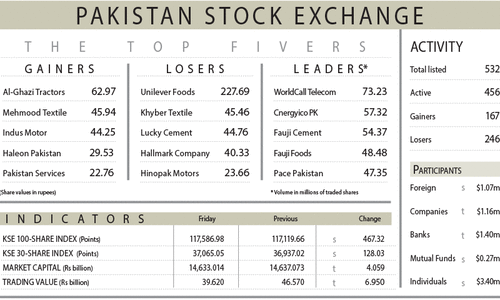SINGAPORE, May 23: Singapore’s inflation hit a 26-year high in April while Indian wholesale prices are surging, underlining a shift in priorities across Asia as policy makers focus on grappling with growing price pressures.
Policy steps and statements by officials across the region show how skyrocketing global prices for everything from oil to rice have become a primary preoccupation among governments, in some cases trumping concerns over growth.
Faced with the worst inflation since the 1970s, the State Bank of Pakistan raised interest rates late on Thursday, sending its main share index down nearly 5 per cent on Friday and prompting the rupee to firm 1.2 per cent against the dollar.
India is struggling with whether to raise fuel prices to cut its swelling subsidies bill in the face of record oil prices, while Indonesia said on Thursday it planned such a move.
Singapore’s inflation jumped to 7.5 per cent in April on higher housing, food and oil prices, prompting the government to raise its full-year inflation forecast to 5-6 per cent from 4.5-5.5 per cent.
Chinese Premier Wen Jiabao told a meeting of his cabinet on Wednesday that, even in the face of economic uncertainties brought about by the devastating earthquake that hit the country’s southwest last week, inflation remains Beijing’s most pressing economic problem.
Annual inflation in the Philippines jumped to 8.3 per cent in April, its highest in nearly three years; that in China hit 8.5 per cent, close to a 12-year high.
India is also expected to raise petrol and diesel prices soon to save state energy firms from mounting losses, even though it too is grappling to control inflation, an especially poignant issue during an election year.
India’s wholesale price index rose 7.82 per cent in the year to May 10, but a revision took the figure above 8 per cent in March for the first time in 3 years.
Analysts said the inflation figures, coupled with the looming rise in fuel prices, would thrust the growth-versus-inflation dilemma firmly to the top of the central bank’s list of concerns.
“Do we live with a high inflation or see growth prospects jeopardised in the short and medium term?” said Shubhada Rao, chief economist at Yes Bank in Mumbai.
Concerns over inflation and the prospect of slower economic growth weighed on most Asian currencies on Friday, with the Thai baht falling as low as 32.14 per dollar, down three-quarters of a percent from late Asian trade on Thursday.
“There are a couple of important themes: rising inflation and central banks being behind the curve, still high oil prices, and some expectations of growth slowdown in Asia,” said Thomas Harr, a strategist with Standard Chartered Bank in Singapore.
Asia is not alone in facing an inflation threat.
It is a concern globally, underlined by a Reuters poll showing inflation forecasts for rich nations rising across the board.—Reuters













































Dear visitor, the comments section is undergoing an overhaul and will return soon.